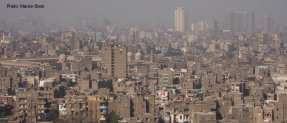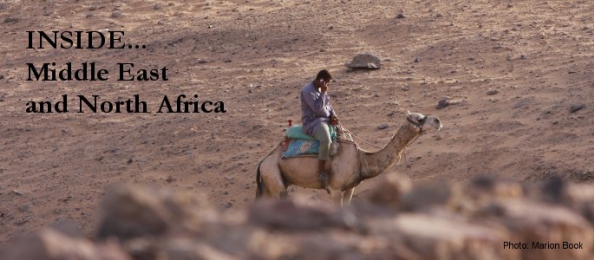Introduction
Will the Arab Spring Free the “Orphans of Globalization”?
By Prof. Jean-Pierre Lehmann (IMD)It was a humiliated Arab youth – the Tunisian Mohammed Bouazizi from the desolate village of Sidi Bouzid – who, in immolating himself, sparked a revolution that engulfed his country, spread to Egypt, and has gripped the entire Arab world. It is the first revolution to happen in the Arab world for some time, certainly one led by youth, and it is the first in which the spirit of revolution was spread through such social media instruments as Facebook and Twitter. more[...]
Freedom, entitlement, and the path to development
By Jean-Pierre Chauffour (World Bank)Twenty years after the revolutions of Central and Eastern Europe, the Arab Spring is again raising some fundamental questions about the place of freedom and entitlement in development. Depending on the balance between free choices and more coerced decisions , individual opportunities to learn, own, work, save, invest, trade, protect, and so forth could vary greatly across countries and over time. more[...]
Society
-
Wasta: How the Use of “Connections” Impacts on Private Sector Development in Arab Countries and Why
Dr. Markus Loewe, German Development InstituteThe literal translation of the Arabic word wasta is “connection,” but it is often employed for favoritism, that is, the use of personal relations for preferential treatment. Favoritism is a form of corruption when someone uses her/his position to distribute the resources of someone else (e.g., the employer or the state) to a friend or relative. more[...]
The Author
-
Improving Labor Standards Performance in the Middle East
Craig Moss, Social Accountability International (SAI)Labor standards and working conditions in the Middle East exhibit many of the same basic problems that occur globally. If we look at workers’ demands from the recent strikes in Egypt and Jordan, we will see issues that clearly violate the International Labour Organization’s core labor conventions – unfortunately, that will surprise no one. more[...]
The Author
-
On the Role of Human Development in the Arab Spring
Prof. Randall Kuhn, University of DenverThis essay traces the impact of human development on political change, focusing on the events of the Arab Spring. Over the past generation, most Arab States experienced rapid progress in human development outcomes, including declining child mortality, increasing schooling and increasing height of women. I posit that improvements in human development laid the foundation for mobilization against political regimes. more[...]
The Author
Environment

Renewable Energy in the Middle East and North Africa
By Dr. Franz Trieb (German Aerospace Center - DLR), Prof. Hans Müller-Steinhagen (Technische Univeristät Dresden)Until very recently, the countries of the Middle East and North Africa (MENA) region had not indicated any serious interests in the use of renewable energies, as these technologies were considered insufficient, irrelevant, and expensive. Countries with oil or gas became rich by exploiting their fossil fuel reserves, while the other countries claimed to be too poor to be able to afford wind or solar power. This picture changed in 2008 when the price of a barrel of oil climbed to $140. more[...]

Water, oil and demographics: The Arab world’s triple crisis
By Dr. Nafeez Mosaddeq Ahmed (Institute for Policy Research & Development)Unless Arab governments invest much more in health, education and citizens' rights, warns Nafeez Mosaddeq Ahmed, the pressures of water scarcity, oil depletion and population growth will spell their downfalls. One in five people around the world lack access to safe drinking water, so it is undeniable that we already face a global water crisis. But water scarcity is not just about its physical availability, it is also about power, poverty and inequality. more[...]
The World Banks "Environment Sector Brief"
With scarce water and limited arable land the Middle East and North Africa (MENA) region is accustomed to dealing with environmental stress since its early civilizations. However the environmental challenges in modern times have accelerated, posing risks for the standards of living of future generations and raising the costs of mitigating negative environmental impacts. Despite significant and steady awareness and improvements over the past decade, the region is threatened by declining per capita water resources, loss of arable land...
CSR in the Region
The UN Global Compact in the MENA Region
By Matthias Stausberg (United Nations Global Compact)For a few years after the Global Compact’s launch in 2000, the Middle East and North Africa (MENA) remained uncharted territory for the initiative. This changed in 2003, when the first efforts were undertaken to promote the Global Compact in Egypt. A high-level launch took place in Cairo in February 2004, resulting in the participation of more than 50 companies, including many of Egypt’s leading corporations. more[...]
Responsible Business Is the Key – The Role of Corporate Social Responsibility in the Arab Economies
By Walid Nagi (UN Global Compact), Habiba Al Marashi (Emirates Environmental Group (EEG))In this interview, Habiba Al Marashi, Chair of the Emirates Environmental Group (EEG) and Board Member of the UN Global Compact, and Walid Nagi, Manager CSR and Corporate Communications at the Al-Mansour Holding and UNGC Regional Networks Manager MENA and Europe, talk about the drastic social changes, the examples companies can provide, and the importance of the business sector for sustainable development in the MENA region. more[...]
The Global Compact in the Emirates
By Habiba Al Marashi (Emirates Environmental Group (EEG))In just 20 years, the countries of the Gulf Cooperation Council (GCC) have transformed themselves from deeply traditional nations that depended largely on oil revenues to booming metropolises with rapidly growing and diversified economies. The transformation – especially in the United Arab Emirates (UAE) has been staggering; once home to a small and tight knit society, the UAE today boasts over 202 different nationalities, making it one of the most diverse nations in the world. more[...]
Notable Shift Towards Holistic Understanding of CSR
By Matthias Stausberg (United Nations Global Compact)It took its time but the Global Compact has become increasingly important in the Middle East and North Africa (MENA) over the last couple of years. UNGC spokesperson Matthias Stausberg explains in our interview that the understanding of Corporate Social Responsibility (CSR) as a value driver is typical for the whole region. more[...]
| Title | Region | Initiator | Related tags |
|---|---|---|---|
| AAIB: The First Bank in Egypt to Measure Its Carbon Footprint | Egypt | Arab African International Bank | Carbon Footprint |
| Corporate Governance: The Way to Sustainable Finance | Egypt | Arab African International Bank | AAIB |
| Habshan 5 – Going Green | United Arab Emirates | Consolidated Contractors Company | Consolidated Contractors Company |
| The Argan Program in Morocco | Morocco | BASF SE | BASF |
| My First License - I Know My Road Rules | United Arab Emirates | Tristar Transport LLC | Tristar |
About Us // Privacy Policy // Copyright Information // Legal Disclaimer // Contact
Copyright © 2012-2018 macondo publishing GmbH. All rights reserved.
The CSR Academy is an independent learning platform of the macondo publishing group.








